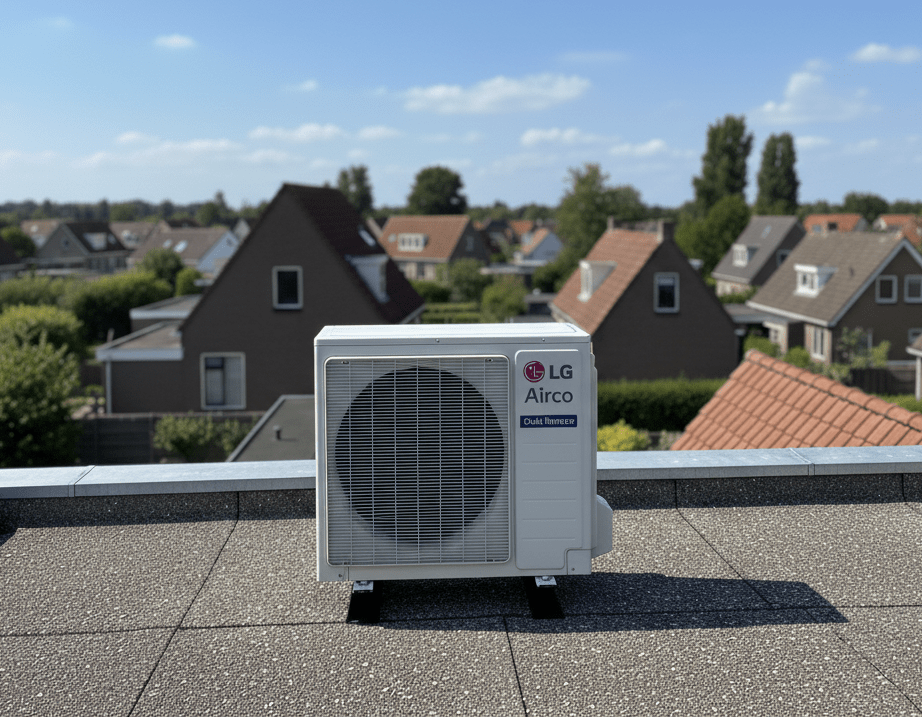Have you noticed your air conditioner isn’t cooling as effectively as before, or perhaps it’s making unusual noises?
Regular maintenance is essential to prevent breakdowns, extend your system’s lifespan, and reduce energy consumption.
In this article, you’ll learn when your air conditioner needs maintenance, how often it’s recommended, what happens during a service visit, and the benefits for your comfort, health, and energy bills.
5 Signs your air conditioner needs maintenance
There are five clear warning signs that your air conditioner requires maintenance. Here’s what to look out for:
- Reduced cooling performance:
This is often the first noticeable symptom. It may indicate clogged filters, a refrigerant leak, or a faulty component. - Unpleasant odors:
Strange smells coming from your air conditioner are often caused by mold or bacteria buildup. This is not only unpleasant but also unhealthy — and a clear sign your unit needs cleaning. - Increased noise levels:
Rattling, hissing, or bubbling sounds can point to mechanical issues or a refrigerant leak. - Water leaking from the indoor unit:
This is commonly caused by a clogged condensate drain. - Higher energy bills:
A dirty or poorly maintained air conditioner has to work harder to achieve the same cooling, which leads to higher electricity consumption — and a noticeable rise in your energy costs.
How often should an air conditioner be serviced?
It’s generally recommended to have your air conditioner serviced once a year.
For systems under 12 kW, maintenance isn’t legally required, since they contain a limited amount of refrigerant. However, topping up the refrigerant every two years helps maintain optimal performance.
Regular check-ups ensure your system remains efficient and prevent unexpected breakdowns during peak summer months.
What happens during an air conditioner service?
During a maintenance visit, a certified technician performs a thorough inspection and cleaning. This typically includes:
· Cleaning the filters and evaporator coils
· Checking and, if necessary, refilling the refrigerant
· Inspecting the pipes, wiring, and key components
· Ensuring optimal airflow through the system
This detailed service ensures your unit runs efficiently, quietly, and safely.
When to schedule air conditioner maintenance
The best time for air conditioner maintenance is in the spring, before the cooling season begins.
As temperatures rise, your air conditioner works harder, so ensuring it’s in top condition helps prevent mid-summer failures.
The benefits of regular maintenance
Regular air conditioner maintenance offers several important benefits:
· Longer lifespan: Prevents premature wear and extends the unit’s operational life.
· Better air quality: Clean filters and coils improve indoor air quality, reducing health risks caused by dust and allergens.
· Energy efficiency: A well-maintained air conditioner operates more efficiently, consuming less electricity and lowering energy costs.
· Fewer repairs: Early detection of issues helps avoid expensive repairs and system failures.
· Consistent performance: Ensures your air conditioner delivers reliable cooling power, even on the hottest days of the year.
Frequently asked questions (FAQ)
At least once a year is recommended. Larger or commercial systems may require more frequent maintenance.
You can clean the filters and keep the unit free of dust, but refrigerant checks and technical servicing should always be handled by a qualified technician.
A typical service costs between €80 and €150, depending on the system type and complexity.
Neglecting maintenance can lead to higher energy costs, poor air quality, and eventually costly repairs or reduced system lifespan.
Conclusion
A well-maintained air conditioner doesn’t just perform better, it’s more energy-efficient, lasts longer, and helps you avoid unexpected repair costs.
By scheduling regular maintenance, you’ll enjoy a healthier, more comfortable indoor climate all year round.
Want to make sure your air conditioner stays in top condition?
Book a maintenance appointment today and prevent unnecessary breakdowns and expenses.
